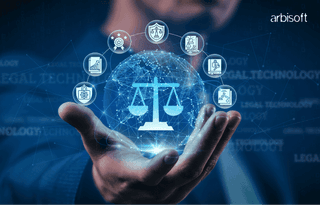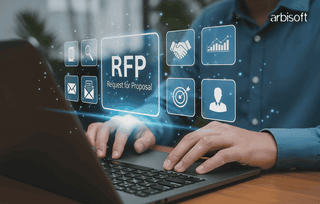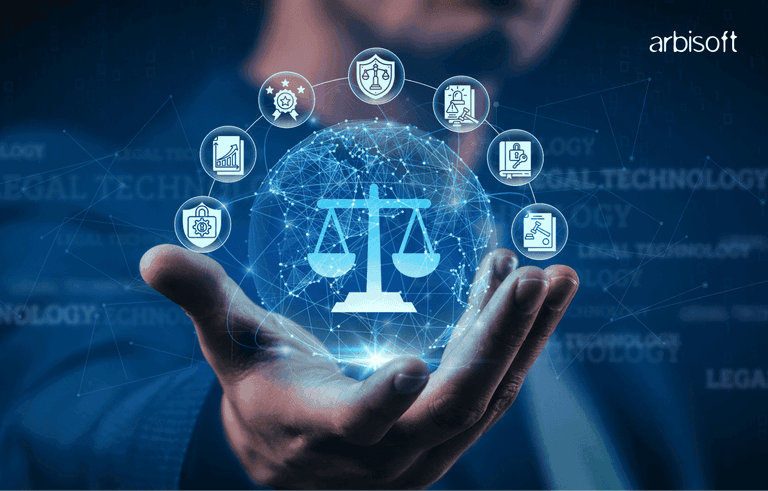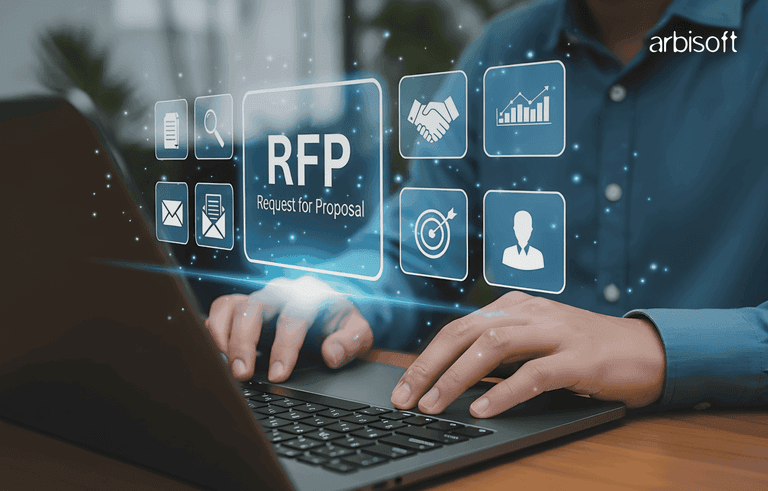We put excellence, value and quality above all - and it shows




A Technology Partnership That Goes Beyond Code

“Arbisoft has been my most trusted technology partner for now over 15 years. Arbisoft has very unique methods of recruiting and training, and the results demonstrate that. They have great teams, great positive attitudes and great communication.”
LMS vs. LXP: Choosing the Right Platform for Your Learning Needs

As we approach the end of 2024, the Learning Management System (LMS) market is still booming, expected to reach a massive $43.95 billion, growing at a rate of nearly 32% each year. Meanwhile, Learning Experience Platforms (LXPs) are gaining serious traction, with 57% of companies planning to adopt one in the near future. This surge in both LMS and LXP popularity shows just how critical choosing the right learning platform is for businesses and educational institutions alike.
But here's the catch: with so many options out there, how do you know which platform best suits your needs? When it comes to learning, whether for educational institutes, a company, or personal development, the right platform can make a big difference. You want a platform that’s easy to use, fits your needs, and keeps learners engaged. But there’s a problem, there are different types of platforms available, and picking the wrong one can lead to frustration.
Two of the most common options are LMS and LXP. They might sound similar, but they are very different.
In this blog, let’s explore what makes each one unique and help you figure out which is best for your needs.
Are your learning goals aligned with the right platform? Find out now.

Access the guide today!

What is an LMS? A Structured Way to Learn
An LMS is a structured learning platform where courses are created and organized by instructors, organizations, or schools. Everything is laid out for the learner, like a syllabus in school or a training manual at work. You can set lessons, assign assignments, and track the progress.
Key Features of an LMS:
Some of the key features include
1. Course Structure: It delivers pre-made, step-by-step courses that the learner follows in a specific order.
2. Tracking Progress: It keeps track of how well learners are doing. It monitors completion rates, quiz results, and overall progress.
3. Formal Learning: It’s best used for formal learning like compliance training, certifications, or even school-based learning.
4. One Size Fits All: The courses are typically the same for everyone, meaning all learners follow the same path.
Example:
Think of an LMS as a classroom setting. For example, if a company needs an employee onboarding eLearning, such as training employees on safety procedures, they would use an LMS. Employees must complete each course in order, take a quiz, and get certified before moving on. The content is all pre-organized by the instructor or company.
When Should You Use an LMS?
- If you need structured learning with specific steps.
- If you need to track learner progress (who completed what, how well they did).
- If the goal is to provide standardized, formal training (like compliance training or certifications).
What is an LXP? Personalized Learning with Flexibility
An LXP is a platform that’s focused on personalized learning and exploration. It’s more flexible and gives learners the freedom to choose what they want to learn. Instead of following a rigid course, the platform suggests learning materials based on the learner’s interests or needs. It’s like having a library of learning content where you can pick and choose what’s most relevant to you.
Key Features of an LXP:
LXP features include:
1. Learner-Driven: Learners have control over what they learn. They choose from a wide variety of content, such as videos, articles, and courses.
2. Personalized Content: The LXP recommends content based on the learner’s role, interests, and past learning activities.
3. Continuous Learning: It’s great for ongoing learning and self-improvement. It’s not just about completing a course, but about learning and growing over time.
4. Collaboration: Some LXPs include features like discussion forums, where learners can share what they’ve learned and discuss ideas with others.
Example:
Think of an LXP as a learning app or a streaming service. Let’s say you work at a marketing agency. The platform might suggest articles, courses, or webinars on the latest trends in digital marketing based on what you’ve shown interest in. You can explore as much or as little as you like. There are no strict courses, just a variety of content to choose from, anytime, anywhere.
When Should You Use an LXP?
- If you want flexible learning that allows learners to explore content based on their needs.
- If you’re looking for continuous, self-paced learning rather than structured courses.
- If you want to engage learners with content they actually find interesting.
A Simple Analogy: LMS vs. LXP
An LMS can be compared to a school curriculum. It tells students exactly what to study, when to study it, and in what order.
An LXP, however, is like a library or Netflix for learning. It provides a wide range of resources and lets learners choose what interests them, offering personalized recommendations.
The Core Differences
Having examined the basics of each platform, let’s compare the two side-by-side:
Feature | LMS | LXP |
| Learning Approach | Structured: content is delivered in a specific order. | Personalized: learners choose what to learn. |
| Content Type | Pre-made courses, quizzes, and assessments. | Videos, articles, courses, and other learning resources. |
| Tracking Progress | Tracks completion and performance. | Tracks engagement with content (like how much content is viewed). |
| Flexibility | Limited: content is set and must be completed in order. | High: learners explore topics of interest at their own pace. |
| Best For | Compliance training, certification programs, schools. | Continuous learning, skill development, and personal interests. |
Choosing the Right Platform for Your Needs
So, how do you know which one to choose? Here’s a simple way to decide based on your needs.
Choose an LMS if:
- You need structure and organization.
- You’re focused on formal training and compliance.
- You want to make sure everyone is on the same page and completes the same set of courses.
For instance, if you are a university that uses an LMS to give students structured courses. They have to complete each course in the order provided to earn their degree.
Choose an LXP if:
- You want to engage learners by letting them explore content they care about.
- You want to support continuous, self-directed learning.
- You want learners to develop skills based on personal interests or specific job roles.
Employees of a software company can explore new programming languages, learn at their own pace, and stay up-to-date on industry trends through an LXP.
Will LXP Replace LMS?
LXP has gained a lot of attention for its ability to offer personalized and engaging learning, but it is not here to replace LMS. Both serve unique roles in eLearning and when used together, they can strengthen your learning programs. Rather than one taking over, these two systems can complement each other to create a more effective learning environment that meets both organizational and individual learner needs.
Integrating LMS and LXP for a Complete Learning Experience
When you combine an LMS with an LXP, you get the best of both worlds. An LMS helps you manage formal, structured training (think certifications, compliance, and mandatory courses), while an LXP focuses on providing personalized learning experiences. This creates a complete system where learners can get the training they need and also discover new, relevant content based on their personal interests or career goals.
How to Bring LMS and LXP Together
To make the most out of both systems, they need to work together seamlessly. This is usually done through integrations like APIs or middleware, which allow the two platforms to share data and sync user progress across both systems.
One of the biggest goals when integrating an LMS and an LXP is creating a smooth user experience. This means that learners should be able to easily transition between formal training modules in the LMS and more flexible, personalized content in the LXP, without feeling like they’re jumping between two completely different systems. A unified platform makes everything easier to navigate, and it ensures learners stay engaged with their development.
When you successfully integrate both platforms, you’ll have a powerful, well-rounded learning ecosystem. Learners can get the structured training they need, along with the freedom to explore topics that interest them, making learning feel more relevant and personal.
Some Key Questions To Help You Determine What You Need
To choose the right platform, consider these:
- What is your main goal? Formal, structured training or flexible, self-paced learning?
- Who are your learners? Do they need strict guidance, or are they self-motivated?
- What content do you need? Pre-set courses or a mix of diverse, curated resources?
- Do you want both? Some organizations benefit from combining LMS and LXP features.
- How important is learner engagement? Are you looking for ways to keep learners excited and motivated about their progress?
- Do you need tracking and reporting features? Are you looking for measurable outcomes, like certification and completion rates?
- What is your budget? Are you willing to invest in a more dynamic, personalized learning experience, or do you need a more affordable, straightforward solution?
- How fast do you need to implement it? Do you need a quick, easy setup, or can you invest time in building a more customizable, expansive platform?
- Do you need scalability? Will the platform grow with your organization’s learning needs over time?
- What is your technological ecosystem? Will the platform integrate easily with your existing systems or do you need a standalone solution?
Conclusion
Ultimately, choosing between an LMS and an LXP depends on your unique learning goals and needs. If your focus is on structured, formal learning with clear tracking, an LMS is the right choice. For organizations seeking - the best LMS technical services, ensuring the chosen platform aligns with strict compliance requirements and maintains seamless user engagement is essential. However, if you’re looking for flexibility, personalization, and continuous skill development, an LXP will better engage learners and foster a culture of self-directed learning.
Many organizations find value in combining both platforms, using the strengths of each to create a well-rounded learning experience. Whichever you choose, the key is to create an environment where learners feel empowered to grow, explore, and succeed. The right platform can transform the way you approach learning, making it more meaningful, engaging, and impactful for everyone involved.
























